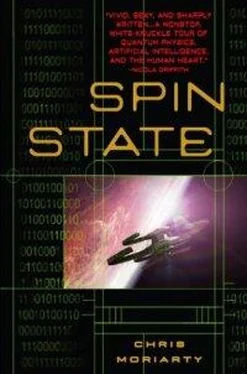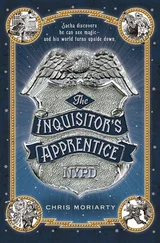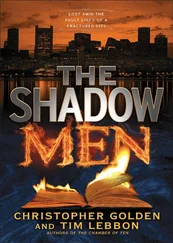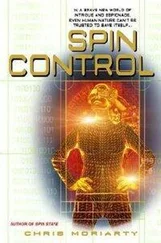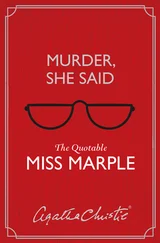Finally the NowNet logo blossomed on-screen, followed a half beat later by a 2D view of an attractive young man sitting at a suspiciously neat desk. He wore the inevitable Ring-side business blue suit, and his neck was encased in the stiff bead-and-bone latticework of a tribal collar.
The collar had to be fake; no mere salary puller could afford genuine Earth imports. But even the good fakes were expensive. And this was a good fake. All in all, the living, breathing image of the up-and-coming junior editor.
“Gillian-Gould’s-office-may-I-ask-who’s-calling?” he said in a tone that told Li precious few people talked to Gillian Gould without appointments.
Then he looked into his monitor and nearly jumped out of his ergonomically correct chair. “Dr. Sharifi! Sorry. If you’ll just give me a minute, I’ll get her out of her meeting for you.”
Li blinked in surprise, but he was gone before she could say anything. She accessed the wall settings and saw that Sharifi had activated an extrapolated presentation program—a streamspace interface that put a business-appropriate talking head on the line so you could hold business meetings in your shorts, or while you were eating breakfast, or whatever. Li hesitated, then deactivated the presentation program just as Gould came on-screen.
Gould had perfect posture and the sort of washed-out Anglo-Saxon face that Li had never been able to read worth a damn. Like her assistant, she wore a tribal collar. Unlike her assistant’s collar, Gould’s was genuine. It nestled against her throat, half-hidden by a smoke gray linen blouse. But the bone was real bone; the beads antique bottle glass; the knots actually hand-tied by some shirtless old woman in the Sub-Saharan Cultural Preserve. And all shipped into orbit at a cost Li couldn’t begin to imagine. Nobody was better at looking rich than rich liberals.
“Hannah!” Gould said, smiling. Then she saw Li.
The smile shut down like someone had shot the lights out. “What is this?” Gould asked, her blue eyes cold enough to freeze running water.
Li swiped the scan plate at the bottom of the screen and let her ID do the talking. “Just a few routine questions.”
“Fine,” Gould said. “But I’m recording this.”
Li blinked and put on her boring face. “The official Fuhrman-locked recording will be available to you immediately, Ms., ah”—she paused and pretended to look down at the book in her hand—“Gould. After all, this isn’t a criminal investigation.”
“Of course not,” Gould said, backpedaling.
“What’s your relationship to Hannah Sharifi?” Li asked.
“Cousin.”
“But—”
“Her adoptive mother was my father’s sister.”
“I see. When did you last speak with her?”
“I don’t know exactly.”
Lie number one , Li thought, her eyes nailed to Gould’s carotid artery where it emerged from the intricate beadwork of the tribal collar. “Approximately?”
“Within the last few weeks probably. We talk a lot.”
Li considered asking Gould about Sharifi’s “life insurance” but decided not to. Information was power, and it rarely paid to show a suspect your cards when you were still shuffling them. “Did she send you anything by surface mail since then?” she asked instead.
“She might have.”
“I see,” Li said again. She wasn’t quite able to keep the sarcasm out of her voice.
A line appeared between Gould’s pale eyebrows. “I have nothing to hide. She often sent me drafts of her work.”
“What? You’re a physicist too?”
“I’m her editor. She had two books in the works with me.”
“Had?”
The line deepened. “One book’s gone into final production.”
“Did she usually ship her manuscripts solid mail?”
“She dislikes working on electronic galleys.”
“She must dislike it a lot. Real mail’s slow. And pricey.”
“She has poor eyesight.”
“Bad eyesight,” Li said. “A construct?”
She gave Gould a blank, eyebrows-raised look—a look that had squashed trench mutinies and broken strong men in interrogation.
It slid off Gould like water. Which just went to show that nasty looks worked better when there was a real possibility of backing them up with something a little more solid than harsh language.
“Are we done?” Gould said. “I really am busy, so unless you have any more questions about my cousin’s reading habits… ?”
A minute later the conversation was over.
It was true what people said, Li thought as the screen shut down. Ring-siders really were a different species.
Well, she’d gotten something out of the call. Gould had lied about when she had last seen Sharifi, and probably about the package and Sharifi’s eyesight as well. Most important, she’d never asked the one question any friend or relative should have asked: where was Sharifi?
She checked the time—8A.M., local. High time for good little security officers to be in the office. “McCuen?” she said, toggling her comm.
“Here,” said his disembodied voice in her ear, so quickly that he must have been hanging over his terminal waiting for her call.
She didn’t initiate a VR link. If she’d thought about it, she could have put a name to her reluctance to have McCuen see her standing in Sharifi’s quarters. But she didn’t let herself think about it.
“Gillian Gould,” she said, relaying the realspace address and streamspace coordinates. “I want a watch on her. Twenty-four hours a day. I want to know who she talks to, where she goes, what she buys, what she reads. Everything.”
“What’s up?”
“She’s Sharifi’s cousin.”
“We’re putting Sharifi’s cousin under surveillance? Why?”
Li hesitated, torn between the knowledge that she would need help—help McCuen was better qualified to give than anyone else on-station—and the fear that sooner or later anything she told him would work its way back to Haas.
Or would it? And when had she gotten so suspicious, anyway?
“Gould knows Sharifi’s dead,” she said cautiously, telling herself that McCuen was smart and capable and it wouldn’t hurt to play him out a little line and see what he did with it. “She knew it before I called her.”
An eerie quavering floated over the line, making Li’s mind run to banshees and Becky circles. It took her a long moment to realize it was McCuen whistling.
“Fuck,” he said, sounding very young and very impressed.
“Yep,” she told him, grinning. Fuck indeed.
She signed off, cut the link, and looked at Sharifi’s desk again, thinking. She bent down and started pulling its flimsy drawers open. The top two drawers gave up nothing, but when she opened the bottom drawer, she saw a long slim black case tucked in behind some datacubes.
Status lights blinked soothingly on its upper surface, but aside from the lights, the case was plain matte black without labels or corporate logos. Li had seen similar cases before. They tended to be wrapped around expensive experimental wetware.
This one was no exception. Its interior was lined with a thick layer of viral jelly, warm and moist as the inside of a mouth, maintaining its precious cargo at 99.7 percent humidity and a nice sterile four degrees above body temperature. And couched in the jelly like a pearl necklace was a finger-thick braid of silicon-coated ceramsteel.
It was a wet/dry interface. One end terminated in a standard-sized plug designed to fit an external silicon-based dataport. The other end—the one that necessitated the fancy storage system—was wetware, tank-grown nerve tissue shaped for a high-capacity cranial socket. The whole device had the sleek, understated look of top-of-the-line custom work. Hacker’s gear.
Читать дальше
